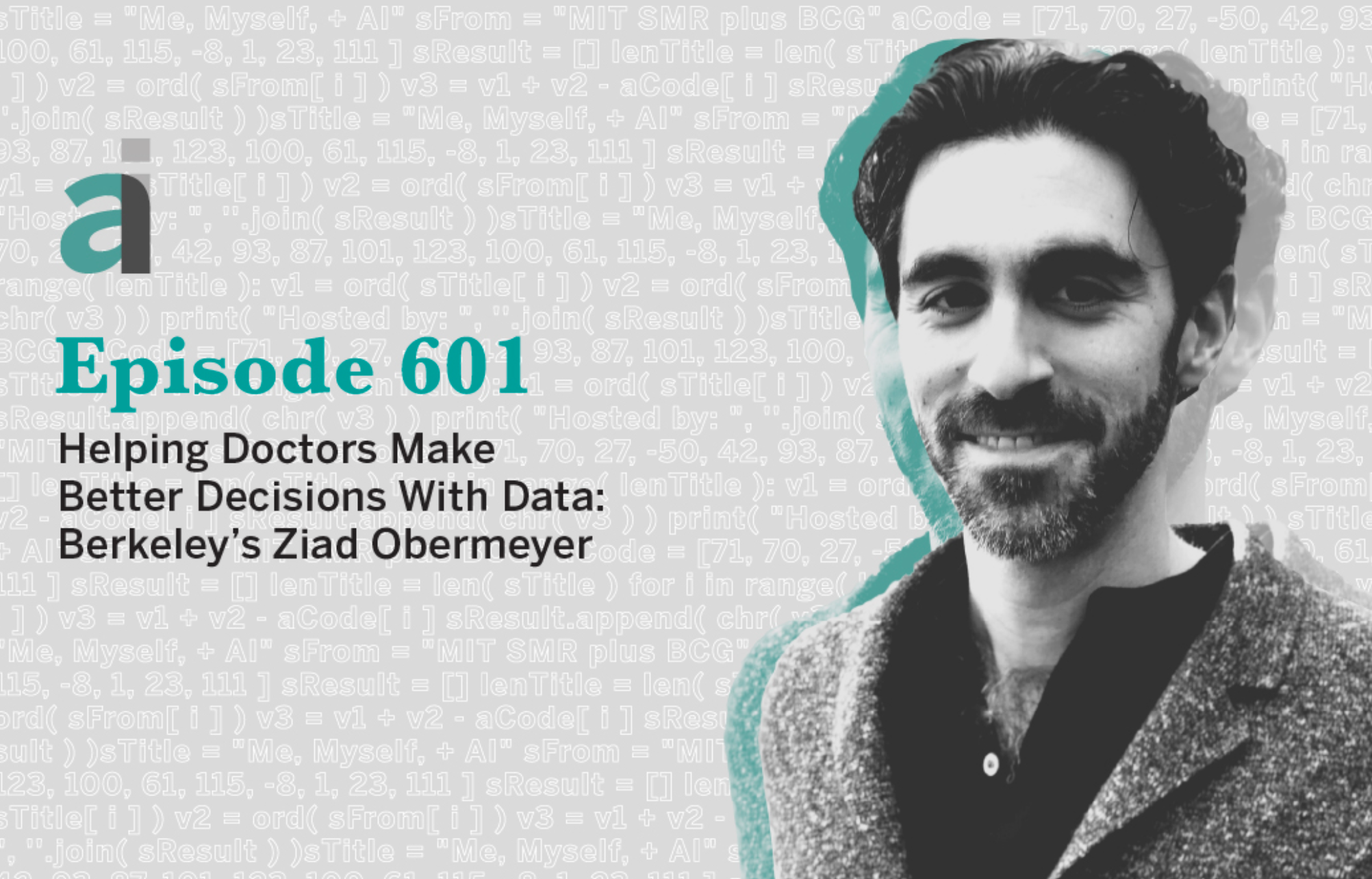In a recent episode of “Me, Myself, and AI,” a podcast from MIT’s Sloan School of Management, Ziad Obermeyer discusses his research on algorithmic bias and the use of AI and machine learning in predictive analytics in health care. Listen to the episode here.
Emmanuel Saez on State Wealth Taxes
In lieu of a federal wealth tax, state lawmakers in California, New York, and Washington have proposed legislation to tax billionaires on a state level. A recent article from the Washington Post explores these efforts, featuring commentary from Emmaneul Saez, who was enlisted by legislators to help draft the new policies. Check out the full article.
Hilary Hoynes in VoxEU
How does losing access to nutritional support impact families? A VoxEU column highlights research from O-Lab Faculty Director Hilary Hoynes and coauthors on the Special Supplemental Nutrition Program for Women, Infants, and Children (WIC). Researchers find that after losing access to the program, adult women consume less to shield children from nutritional losses. Read the full article here.
Enrico Moretti on Tax Hubs
MIT’s Sloan School of Management recently highlighted a new working paper from Enrico Moretti and coauthors that examines the balance between local productivity and local costs in research and development, and finds that the productivity gains from a density of scientific talent generally outweigh the additional costs. Still, their findings suggest that cities with exceptionally high talent density have labor and real estate costs that dwarf gains. Learn more about the study.
Michael Reich on State Minimum Wage Increases
In CNN, Michael Reich discusses recent state minimum wage increases in the context of existing high inflation, suggesting that recent minimum wage increases will not necessarily result in dramatic increases in prices and labor costs in low-wage sectors. Read more here.
Emmanuel Saez and Gabriel Zucman in the Financial Times
How will raising interest rates affect inequality and economic mobility for low-income families? In a new Financial Times analysis, Gillian Tett highlights recent work from Emmanuel Saez and Gabriel Zucman in analyzing how Fed policy may undo some of the gains from the COVID-19 economic recovery. Read the article here.
Hilary Hoynes in Equitable Growth
Each piece of legislation considered by the US Congress receives a score from the Congressional Budget Office, which estimates the cost of the legislation within a ten year budget window. However, this approach neglects the long-term benefits of income support and social safety net programs, writes Hilary Hoynes in a new piece for Equitable Growth. Read the full article.
Meredith Fowlie on the Cost of Electricity in California
Research from Meredith Fowlie & coauthors at the Energy Institute at Haas is the centerpiece of a Washington Post analysis on the cost of electricity in California. The article describes how California’s electricity tariffs add about $600 to the annual running cost of an electric vehicle in California, on average. Read the article here.
David Card in Bloomberg Línea
During a recent visit to Brazil, David Card spoke with Bloomberg about the potential for a US recession, anticipating a labor market slowdown as companies start selling fewer products. Read the full piece here.
Hilary Hoynes on the Impact of the Expanded Social Safety Net
A recent New York Times article by Jason DeParle analyzes how recently expanded social safety net programs have powerfully reduced child poverty. DeParle features commentary from Hilary Hoynes, who insists, “When we spend money, we make gains,” she said. “Providing more resources to low-income families changes children’s life trajectories.” Read the article here.
Max Auffhammer on Increasing the Social Cost of Carbon
According to a new study published in Nature, the social cost of carbon estimate used by the federal government does not reflect recent research – in fact, carbon should be priced 3.6 times higher. In the Associated Press, authors highlight this nature study and invite commentary from Max Auffhammer, who praises the new model and its design. Read the article here.
Why the Inflation Reduction Act is key to strong, broad-based U.S. economic growth
The newly-passed Inflation Reduction Act has the power to combat growing income and wealth and inequality in the United States, explains a new Equitable Growth article. Author David Mitchell underscores how key climate provisions of the act will be paid for by increased taxes on the wealthy, mentioning tax-evasion research from Gabriel Zucman. Read the article here.
Emmanuel Saez & Gabriel Zucman on Realtime Inequality
A New York Times opinion piece by Peter Coy spotlights realtimeinequality.org, an online tool created by Emmanuel Saez and Gabriel Zucman, which shows which income groups benefit from wealth growth in the United States. Based on Saez + Zucman’s work, Coy emphasizes that economic performance evaluations should go further than simple GDP growth. Read the piece here, and check out more press coverage of Realtime Inequality by NPR, VoxEU, and Bloomberg.
Ellora Derenoncourt on Shortcomings of the Great Migration
A new piece from Inequality.org cites research by affiliate Ellora Derenoncourt to explain the shortcomings of the Great Migration. Resulting from the racist violence of 1919’s “Red Summer,” in addition to policies driving de-industrialization, ghettoization of African Americans, white flight, and mass incarceration, outcomes for third-generation Black children in the North today look no better than outcomes for their Southern counterparts. Read the article here.
Michael Reich on the California Living Wage Act
A new Opinion piece published in the Los Angeles Times cites research from affiliate Michael Reich on the California Living Wage Act to substantiate calls for a minimum wage increase. Reich found that the Act would have a negligible contribution to inflation – but as the measure failed to qualify for the 2022 ballot, LA Times author Isaac Lozano suggests a wage increase is in the hands of the state legislature. Read the article here.
Hilary Hoynes testifies to the House Budget Committee
O-Lab Director Hilary Hoynes testifies to the House Budget Committee, reviewing research that shows safety net programs for children are cost-effective investments with long-term impacts on children’s life outcomes. Read the report and watch the hearing here.
Amy Lerman on "Clean Slate" Justice Laws
In a new piece for WIRED, Amy Lerman weighs in on ‘clean slate’ laws – which keep criminal records from being publicly available – as policies to reduce discrimination against the formerly incarcerated. While these laws have bipartisan support, Lerman’s research demonstrates that “automating record clearance alone is not going to be sufficient to reduce racial disparities in who has a criminal record.” Read more here.
Ellora Derenoncourt on Racial Wealth Inequality
Despite progress made since the civil rights movement, efforts toward reducing racial wealth inequality are stalling, highlights NPR Planet Money. The latest edition of the newsletter features new research from affiliate Ellora Derenoncourt and coauthors that constructs the first continuous dataset on wealth inequality between Black and white Americans, dating back to 1860. Read more here.
Hilary Hoynes on Investing in Children
A new New York Times Opinion piece by Bryce Covert argues that the United States should do more to keep young people out of poverty through expanded social programs. O-Lab Faculty Director Hilary Hoynes notes that, compared to other countries, the United States spends far less money on reducing its child poverty rate – despite the proven success of programs that target poverty among the elderly, like Social Security. Read more here.
Jesse Rothstein on Job Prospects for the College-Educated
College-educated workers struggle to reach the middle class more so than previous generations, impacting politics and labor activism. A New York Times article by Noam Scheiber discusses associated consequences for unionization, featuring research from Jesse Rothstein that finds that job prospects for the college-educated had not recovered ten years after the Great Recession. Read more here.





















